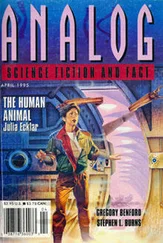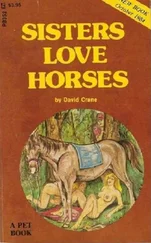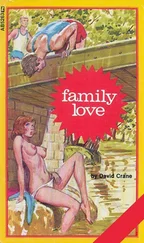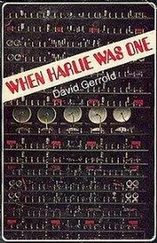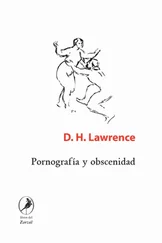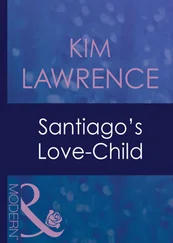David Lawrence - Women in Love
Здесь есть возможность читать онлайн «David Lawrence - Women in Love» весь текст электронной книги совершенно бесплатно (целиком полную версию без сокращений). В некоторых случаях можно слушать аудио, скачать через торрент в формате fb2 и присутствует краткое содержание. Год выпуска: 2003, Жанр: Классическая проза, Современные любовные романы, на английском языке. Описание произведения, (предисловие) а так же отзывы посетителей доступны на портале библиотеки ЛибКат.
- Название:Women in Love
- Автор:
- Жанр:
- Год:2003
- ISBN:нет данных
- Рейтинг книги:3 / 5. Голосов: 1
-
Избранное:Добавить в избранное
- Отзывы:
-
Ваша оценка:
- 60
- 1
- 2
- 3
- 4
- 5
Women in Love: краткое содержание, описание и аннотация
Предлагаем к чтению аннотацию, описание, краткое содержание или предисловие (зависит от того, что написал сам автор книги «Women in Love»). Если вы не нашли необходимую информацию о книге — напишите в комментариях, мы постараемся отыскать её.
Women in Love — читать онлайн бесплатно полную книгу (весь текст) целиком
Ниже представлен текст книги, разбитый по страницам. Система сохранения места последней прочитанной страницы, позволяет с удобством читать онлайн бесплатно книгу «Women in Love», без необходимости каждый раз заново искать на чём Вы остановились. Поставьте закладку, и сможете в любой момент перейти на страницу, на которой закончили чтение.
Интервал:
Закладка:
'I do think—I do really think we must have the COURAGE to use the lower animal life for our needs. I do think there is something wrong, when we look on every living creature as if it were ourselves. I do feel, that it is false to project our own feelings on every animate creature. It is a lack of discrimination, a lack of criticism.'
'Quite,' said Birkin sharply. 'Nothing is so detestable as the maudlin attributing of human feelings and consciousness to animals.'
'Yes,' said Hermione, wearily, 'we must really take a position. Either we are going to use the animals, or they will use us.'
'That's a fact,' said Gerald. 'A horse has got a will like a man, though it has no MIND strictly. And if your will isn't master, then the horse is master of you. And this is a thing I can't help. I can't help being master of the horse.'
'If only we could learn how to use our will,' said Hermione, 'we could do anything. The will can cure anything, and put anything right. That I am convinced of—if only we use the will properly, intelligibly.'
'What do you mean by using the will properly?' said Birkin.
'A very great doctor taught me,' she said, addressing Ursula and Gerald vaguely. 'He told me for instance, that to cure oneself of a bad habit, one should FORCE oneself to do it, when one would not do it—make oneself do it—and then the habit would disappear.'
'How do you mean?' said Gerald.
'If you bite your nails, for example. Then, when you don't want to bite your nails, bite them, make yourself bite them. And you would find the habit was broken.'
'Is that so?' said Gerald.
'Yes. And in so many things, I have MADE myself well. I was a very queer and nervous girl. And by learning to use my will, simply by using my will, I MADE myself right.'
Ursula looked all the white at Hermione, as she spoke in her slow, dispassionate, and yet strangely tense voice. A curious thrill went over the younger woman. Some strange, dark, convulsive power was in Hermione, fascinating and repelling.
'It is fatal to use the will like that,' cried Birkin harshly, 'disgusting. Such a will is an obscenity.'
Hermione looked at him for a long time, with her shadowed, heavy eyes. Her face was soft and pale and thin, almost phosphorescent, her jaw was lean.
'I'm sure it isn't,' she said at length. There always seemed an interval, a strange split between what she seemed to feel and experience, and what she actually said and thought. She seemed to catch her thoughts at length from off the surface of a maelstrom of chaotic black emotions and reactions, and Birkin was always filled with repulsion, she caught so infallibly, her will never failed her. Her voice was always dispassionate and tense, and perfectly confident. Yet she shuddered with a sense of nausea, a sort of seasickness that always threatened to overwhelm her mind. But her mind remained unbroken, her will was still perfect. It almost sent Birkin mad. But he would never, never dare to break her will, and let loose the maelstrom of her subconsciousness, and see her in her ultimate madness. Yet he was always striking at her.
'And of course,' he said to Gerald, 'horses HAVEN'T got a complete will, like human beings. A horse has no ONE will. Every horse, strictly, has two wills. With one will, it wants to put itself in the human power completely—and with the other, it wants to be free, wild. The two wills sometimes lock—you know that, if ever you've felt a horse bolt, while you've been driving it.'
'I have felt a horse bolt while I was driving it,' said Gerald, 'but it didn't make me know it had two wills. I only knew it was frightened.'
Hermione had ceased to listen. She simply became oblivious when these subjects were started.
'Why should a horse want to put itself in the human power?' asked Ursula. 'That is quite incomprehensible to me. I don't believe it ever wanted it.'
'Yes it did. It's the last, perhaps highest, love-impulse: resign your will to the higher being,' said Birkin.
'What curious notions you have of love,' jeered Ursula.
'And woman is the same as horses: two wills act in opposition inside her. With one will, she wants to subject herself utterly. With the other she wants to bolt, and pitch her rider to perdition.'
'Then I'm a bolter,' said Ursula, with a burst of laughter.
'It's a dangerous thing to domesticate even horses, let alone women,' said Birkin. 'The dominant principle has some rare antagonists.'
'Good thing too,' said Ursula.
'Quite,' said Gerald, with a faint smile. 'There's more fun.'
Hermione could bear no more. She rose, saying in her easy sing-song:
'Isn't the evening beautiful! I get filled sometimes with such a great sense of beauty, that I feel I can hardly bear it.'
Ursula, to whom she had appealed, rose with her, moved to the last impersonal depths. And Birkin seemed to her almost a monster of hateful arrogance. She went with Hermione along the bank of the pond, talking of beautiful, soothing things, picking the gentle cowslips.
'Wouldn't you like a dress,' said Ursula to Hermione, 'of this yellow spotted with orange—a cotton dress?'
'Yes,' said Hermione, stopping and looking at the flower, letting the thought come home to her and soothe her. 'Wouldn't it be pretty? I should LOVE it.'
And she turned smiling to Ursula, in a feeling of real affection.
But Gerald remained with Birkin, wanting to probe him to the bottom, to know what he meant by the dual will in horses. A flicker of excitement danced on Gerald's face.
Hermione and Ursula strayed on together, united in a sudden bond of deep affection and closeness.
'I really do not want to be forced into all this criticism and analysis of life. I really DO want to see things in their entirety, with their beauty left to them, and their wholeness, their natural holiness. Don't you feel it, don't you feel you CAN'T be tortured into any more knowledge?' said Hermione, stopping in front of Ursula, and turning to her with clenched fists thrust downwards.
'Yes,' said Ursula. 'I do. I am sick of all this poking and prying.'
'I'm so glad you are. Sometimes,' said Hermione, again stopping arrested in her progress and turning to Ursula, 'sometimes I wonder if I OUGHT to submit to all this realisation, if I am not being weak in rejecting it. But I feel I CAN'T—I CAN'T. It seems to destroy EVERYTHING. All the beauty and the—and the true holiness is destroyed—and I feel I can't live without them.'
'And it would be simply wrong to live without them,' cried Ursula. 'No, it is so IRREVERENT to think that everything must be realised in the head. Really, something must be left to the Lord, there always is and always will be.'
'Yes,' said Hermione, reassured like a child, 'it should, shouldn't it? And Rupert—' she lifted her face to the sky, in a muse—'he CAN only tear things to pieces. He really IS like a boy who must pull everything to pieces to see how it is made. And I can't think it is right—it does seem so irreverent, as you say.'
'Like tearing open a bud to see what the flower will be like,' said Ursula.
'Yes. And that kills everything, doesn't it? It doesn't allow any possibility of flowering.'
'Of course not,' said Ursula. 'It is purely destructive.'
'It is, isn't it!'
Hermione looked long and slow at Ursula, seeming to accept confirmation from her. Then the two women were silent. As soon as they were in accord, they began mutually to mistrust each other. In spite of herself, Ursula felt herself recoiling from Hermione. It was all she could do to restrain her revulsion.
They returned to the men, like two conspirators who have withdrawn to come to an agreement. Birkin looked up at them. Ursula hated him for his cold watchfulness. But he said nothing.
'Shall we be going?' said Hermione. 'Rupert, you are coming to Shortlands to dinner? Will you come at once, will you come now, with us?'
Читать дальшеИнтервал:
Закладка:
Похожие книги на «Women in Love»
Представляем Вашему вниманию похожие книги на «Women in Love» списком для выбора. Мы отобрали схожую по названию и смыслу литературу в надежде предоставить читателям больше вариантов отыскать новые, интересные, ещё непрочитанные произведения.
Обсуждение, отзывы о книге «Women in Love» и просто собственные мнения читателей. Оставьте ваши комментарии, напишите, что Вы думаете о произведении, его смысле или главных героях. Укажите что конкретно понравилось, а что нет, и почему Вы так считаете.

